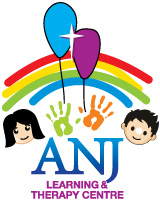What is music therapy?
According to the American Music Therapy Association:
“Music therapy is an evidence-based, allied health profession that uses music interventions to accomplish individualized goals. Through musical responses, the board-certified therapist assesses emotional well-being, physical health, social functioning, communication abilities, and cognitive skills. Specifically, regarding communication, music therapists are trained to adapt elements of music (e.g. tempo, rhythm, melody, harmony, and texture) to promote effective expressive and receptive communication skills.”
Collaboration between music therapy and speech therapy:
A team approach is effective, rather than providing just one type of therapy; the pros of using a team approach includes:
- It enhances the overall quality of life of the individual
- it is economically beneficial.
- The structural similarities between language and music are numerous.
Music Therapy in speech and language disorders:
Music therapy is a very useful tool for cueing responses, help achieving speech milestones and promoting development in individuals with several speech and language disorders.
To communicate one’s own thoughts and feelings can be challenging for individuals with speech and language disorders; Their education also is compromised greatly. To prevent the clients academic and social life from being affected, the solution to this problem would be to intervene as early as possible. A common professional involved in therapy is the Speech-Language Pathologist, but another useful professional would be a Music Therapist.
Who can benefit from Music Therapy?
A number of several speech and language disorders can be treated with music therapy. Aphasia is one such communication disorder the often occurs due to brain injuries or brain stroke or neurological disorders. Aphasia causes word finding difficulties, naming difficulties and impairs the language.
Children with delayed speech skills are another group of individuals who can benefit from music therapy. A study named “The Effect Music has in Speech Therapy” explored the use of music therapy with individuals who suffered from speech and language disorders and were undergoing speech-language intervention for the same. The study concluded that there was a strong correlation between music incorporated in speech-language intervention.
Research has shown that people with autism spectrum disorders (ASD) respond favourably to music in both children and adults. Music can be used as a therapeutic technique because people with autism frequently respond favourably to it when little else can attract their attention.
Benefits of Music Therapy:
There are various benefits of Music Therapy. Some of the major benefits are mentioned below:
Music enhances social skills:
In contrast to play sessions without music, children with autism shown greater emotional expression and social involvement during music therapy sessions, according to a 2009 study by Kim, Wigram, and Gold. Additionally, during music therapy, these kids reacted to the therapist’s demands more frequently than they did during play sessions without music.
A talented therapist can also utilise music to help kids engage with others and develop their social skills. Music therapy sessions can boost engagement through activities like passing and sharing instruments, music and movement games, huddling around a focal instrument, learning to listen, and welcoming song singing. Through conversational lyrics, replicating body language or gestures, cooperative play, and group activities/participation, it offers a potent technique to enhance language abilities and social-pragmatic skills. Children with autism are subjected to music therapy to work on social language goals including eye contact and joint attention. Music-related activities involve bodily awareness and a comprehension of nonverbal clues, just like in speech.
Music enhances behaviour:
Music helps in reducing restlessness, aggressiveness and calms the individual. Especially children with behavioural issues tend to respond well to music.
Music enhances communication skills:
According to Wan et al. (2004), music strengthens the connection between the auditory and motor regions of the brain, which may enhance interpretation of verbal orders. The brain connections required for speech can be strengthened and enhanced by combining music with actions and frequent training.
Individuals with aphasia, autism and speech-language disorders are found to show improvement in communication skills with the inclusion of music therapy as it strengthens their brain connections required for speech.
Music reduces anxiety:
As music has a regular pattern and the beats are organised in a predictable fashion, classical music and music with a constant rhythm are regarded to be the best for reducing anxiety.
How does Music therapy work?
Speech-language Pathologists and Music therapists must work as a team to help in interventions for individuals with speech and language disorders.
In Aphasics, medical treatment is important; in addition to medical rehabilitation, music therapy can be an effective tool to enhance their speech and language skills. Speech-language pathologists (SLPs) turned to music when they noticed that the aphasics were able to sing sentences back to them instead of repeating in plain speech; hence the SLPs worked on aphasics using sing-song speech and later transitioned to plain speech.
It’s crucial that the music played for kids with speech and language impairments is tailored just right for them. These songs must be simple and have shorter lyrics so that kids can easily understand them. The music won’t improve their speech skills if they are unable to comprehend and interpret the words appropriately. Children who have delayed speech development are shown to benefit most from repetitive, catchy tunes with hard consonants.
In conclusion, when thinking how to assist clients with identified speech and language impairments, speech-language pathologists are nearly always the first people that spring to mind. Even though speech-language pathologists are incredibly effective and beneficial on their own, working with music therapists is a perfect partnership for SLPs. This combination works so well because music and words have such a special and intricate relationship. They both have vocal and auditory components and are universally acknowledged. Language makes use of elements like rhythm and tone that are more frequently found in music. At its foundation, the fusion of music and speech-language pathology is beautiful, and when used with clients, it has a profoundly positive impact.

